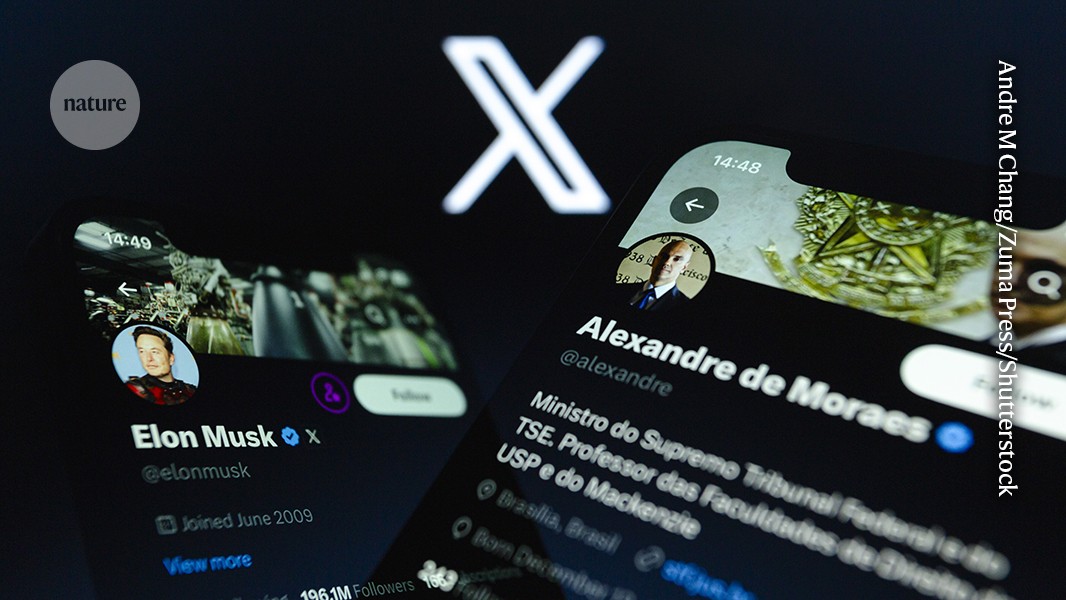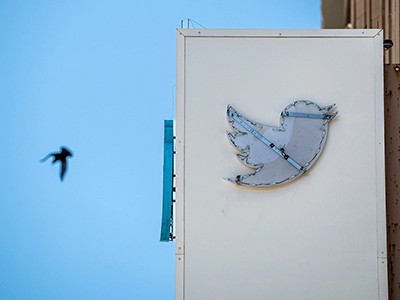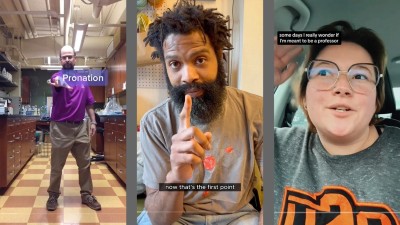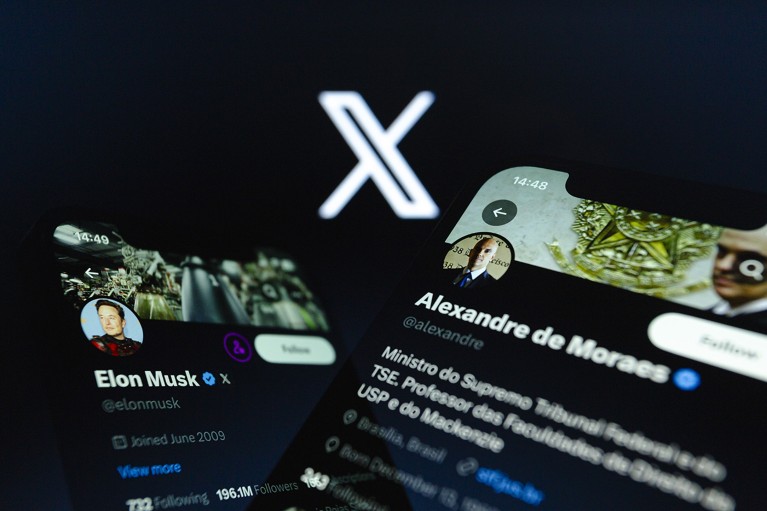
A months-long feud between billionaire Elon Musk and Brazilian Supreme Court justice Alexandre de Moraes has led to a ban of social-media platform X in Brazil.Credit: Andre M Chang/Zuma Press/Shutterstock
After the social-media platform X was banned in Brazil last week, scientists in the country began scrambling to find another online forum for posting about their research, communicating with collaborators and staying abreast of scientific advances. “Following journals and key people always kept me on top of things,” says Regina Rodrigues, a physical oceanographer at the Federal University of Santa Catarina in Florianópolis, Brazil.
Thousands of scientists are cutting back on Twitter, seeding angst and uncertainty
Some feel isolated because of the change. “I’ve lost contact with colleagues and European research groups I joined during my postdoc in Spain,” says Rodrigo Cunha, a communications researcher at the Federal University of Pernambuco in Recife, Brazil.
Others are more sanguine, pointing out that many researchers had already left X (formerly Twitter) after billionaire Elon Musk bought it and changed its policies, including those related to content moderation and how users could be ‘verified’, or deemed an authoritative source of information. Sabine Righetti, a science-communications researcher at the State University of Campinas in Brazil, exited the platform early last year owing to what she perceived as an increase in aggressive messages, especially targeting scientists, journalists and women. “I am these three things,” she says.
Ronaldo Lemos, chief scientist at the Institute for Technology and Society in Rio de Janeiro, says the ban might offer a glimpse of what the world would be like without X. Social networks come and go, he says, pointing to some that have shut down, such as Google’s Orkut, which closed in 2014 and was once popular in Brazil. “People adapt and look for ways to reconstruct their networks in other places,” he says.
Free speech standoff
On 30 August, Brazilian Supreme Court justice Alexandre de Moraes ordered the ban, after his months-long standoff with Musk over the limits of free speech.
Early last month, de Moraes issued a judicial order to shut down a number of accounts that were considered to be spreading disinformation and attempting to destabilize Brazil’s democracy. The company did not comply and closed its Brazilian office about a fortnight later. Following that, de Moraes issued an order requiring X to appoint a new legal representative in the country, because the previous one had failed to comply with judicial orders. X ignored the mandate, leading to the ban. Earlier this week, Brazil’s Supreme Court upheld de Moraes’s ruling — which includes a fine of US$9,000 per day for anyone among Brazil’s more than 200 million people who is caught using X through a virtual private network (VPN) or other means. (A VPN generally encrypts a user’s data and masks their IP address.) That’s more than most Brazilians make in a year.
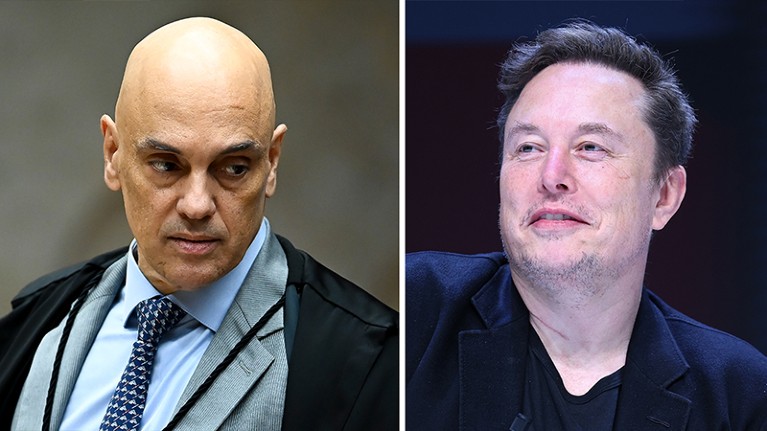
De Moraes (left) asked X, owned in large part by Musk (right), to shut down accounts that he said were spreading false information in Brazil.Credit: Ton Molina/NurPhoto via Getty; Marc Piasecki/Getty
For years, scientists have used X not only to comment on research, chat with peers and find new collaborators, but also to promote their work and correct misconceptions. During the COVID-19 pandemic, for instance, Átila Iamarino, a microbiologist and science communicator in São Paulo, Brazil, became a go-to source on the coronavirus SARS-CoV-2, reaching more than a million followers. “It was the place I debated with peers, put together arguments for live transmissions and debunked falsehoods as they came out.”
Karina Lima, a climatologist at the Federal University of Rio Grande do Sul in Porto Alegre, Brazil, misses the platform, because it was a space where she got opportunities and reached many people through her science-communications work. But she acknowledges that social media shouldn’t be “a lawless land that favours hate speech and disinformation”.
Testing the waters elsewhere
Despite the increase in this type of messaging after Musk took over1, some researchers stuck around. Letícia Sallorenzo, a linguistics researcher at the University of Brasília, still found the tool useful. Before the ban, she was coincidentally studying hate speech targeted at de Moraes on the platform. The ban has cut her off from that work, and she has to petition the court to use a VPN to access X so she can continue.
US TikTok ban: how the looming restriction is affecting scientists on the app
Scientists outside Brazil are also feeling the sting of the loss of X in the country. Although it had become a less reliable network for scientists, “there are Brazilian researchers and institutions there with whom I can collaborate”, says Jonathan Vicente, a researcher in climate change and health at Bern University in Switzerland.
More than two million people in Brazil have now flocked to another social-media platform, called Bluesky. “It’s the platform closest to what Twitter was in the beginning,” Iamarino says. Scientists, too, are trying it out, as well as other platforms such as Mastodon and Threads, Lemos says. The good news is that “it is not as if Twitter ended and there’s no alternative”, he adds.
Reconstructing social networks online, however, can be tough, particularly for researchers in lower-income countries who have little visibility, Rodrigues says. “It is tiring to rebuild a network of peers on top of all the commitments we already have if you’re not a big name that people know,” she says.
To Iamarino, it will become clear which platform has won out among users when they find themselves checking messages on it before they go to bed. He’s starting to feel that way about Bluesky. “I’ve put the app where Twitter once was on my phone,” he says.


